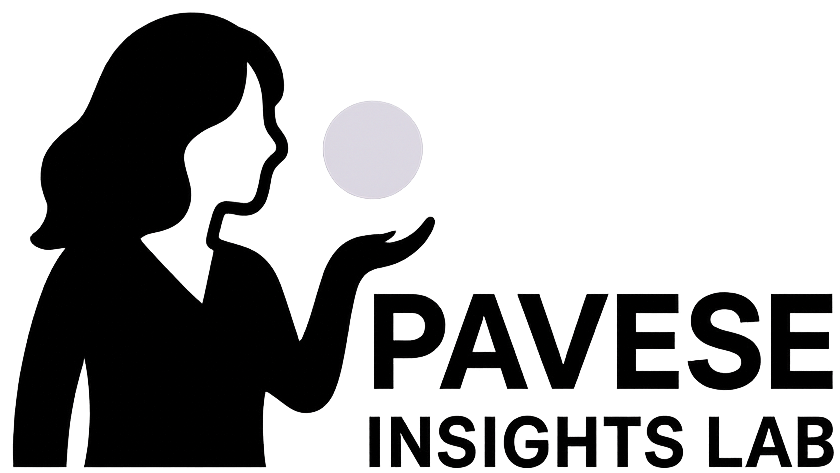Decision Hygiene: Fighting the Hidden Costs of Founder Control
Startups don’t fail because founders don’t work hard enough. They fail because the founder’s energy and judgment get drained by a thousand decisions that pile up — and eventually erode trust, focus, and growth.
This is the hidden cost of control: when every decision runs through you, your company moves only as fast as your inbox, and your mental bandwidth runs out long before the work does.
The shift from builder to leader isn’t about doing less. It’s about making fewer, better decisions — and empowering others to make the rest. This is where decision hygiene comes in.
Why Decision Fatigue Is a Founder’s Silent Killer
Psychologist Roy Baumeister popularized the concept of ego depletion — the idea that our capacity to make decisions wears down over the course of the day. Later research has both supported and critiqued this model, but one finding remains consistent: the quality of our decisions declines under cognitive load.
One striking example comes from a study of parole boards: judges were more likely to grant parole early in the day or right after breaks, and far less likely after making many decisions in a row. If even trained judges default to “no” when decision fatigue sets in, what happens to a founder making 200 choices a day?
For startups, the cost is magnified. When you — the founder — are the bottleneck, not only does your judgment erode, but your team stalls waiting for your call. Control feels safe, but in reality, it slows the whole system down.
From Control to Systems: The Hygiene of Good Decisions
Good decision-making in startups isn’t about being the smartest person in the room. It’s about designing a system that reduces fatigue, distributes authority, and keeps judgment sharp where it matters most.
Here are three pillars of decision hygiene for founders:
-
Ask: Who owns this? Who decides? Who just needs to be informed?
This is the RACI (Responsible - Accountable - Communicated - Informed) model simplified.
If you haven’t clarified, decisions default to you — and you become the choke point.
Practical move: Make a short list of recurring decision types (hiring, product roadmap, customer contracts). For each, assign: Own / Decide / Inform.
-
Psychologist Peter Gollwitzer’s research on implementation intentions shows that when people use “if–then” plans, follow-through increases dramatically.
For founders, this translates to creating default rules that automate common decisions. For example:
If a customer contract is under $10k, then the head of sales can approve it.
If a hiring decision involves my direct reports, then I’m consulted; otherwise, the team lead decides.
(Side note: I have been in many interview loops with >7 interviewers that included the CEO when the scale-up was more than 500 people and the role wasn’t two degrees below the CEO; it demonstrates a lack of trust, inability to make decisions, inefficiencies in process, and many other aspects of the culture being built)
These if–then rules remove ambiguity, protect your bandwidth, and empower others.
-
Not all decisions deserve equal weight. Jeff Bezos distinguishes between Type 1 (irreversible) and Type 2 (reversible) decisions. Type 2 calls should be made quickly; Type 1 deserves more rigor.
Decision hygiene means building timeboxes around both:
Reversible decisions → set a short deadline, act, and adjust.
Irreversible decisions → schedule protected time, get multiple perspectives, and decide once.
This simple filter reduces the mental drag of “open loops” — decisions that hang in the air and exhaust your focus.
The Hidden Costs of Ignoring Decision Hygiene
Left unchecked, poor decision hygiene creates three hidden costs:
Erosion of Trust — When you hold all decisions, your team assumes you don’t trust them. That mistrust is contagious.
Bottlenecked Growth — Nothing scales if every choice routes through the founder. Execution speed slows, opportunities are missed.
Founder Burnout — The cognitive load is unsustainable. The more tired you are, the more likely you default to “safe” (often worse) choices.
These costs are invisible in the short term — but lethal in the long term.
Decision Hygiene as a Leadership Skill
Here’s the paradox: decision hygiene doesn’t just make you more efficient, it makes you a better leader.
When you step back from control and build systems:
Your team learns to own outcomes.
You model trust and adaptability.
You reserve your energy for vision, strategy, and the storms only you can steer through.
In other words: decision hygiene is the bridge between the control vs. trust tension and the doing vs. leading tension in the skills-to-stage gap.
The Lab Experiment: Build Your Decision Playbook
Objective: Reduce fatigue, distribute ownership, and clarify decision-making.
Audit Decisions: List 10–15 decisions you made in the last two weeks.
Classify: For each, mark: Reversible (Type 2) or Irreversible (Type 1).
Assign Rights: Decide who should own, decide, and inform in the future.
Create If–Then Rules: Write 2–3 defaults (e.g., If the spend is under X, then the department head approves).
Timebox: Set clear windows for the next three big decisions.
Reflection Prompt: Where am I still the bottleneck, and what am I afraid will happen if I let go?
Closing Thought
The best founders aren’t those who make the most decisions. They’re the ones who design systems that outlast their own stamina.
Your product may get you started. Your decisions may keep you alive. But only your decision hygiene will free you to grow into the leader your company truly needs.
Article Photo by Edho Pratama on Unsplash
